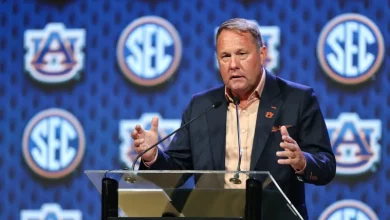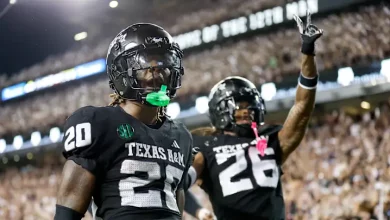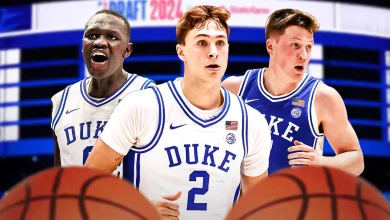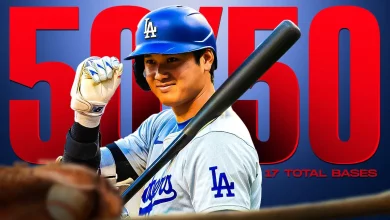UConn’s Dan Hurley Calls Out Duke for Ducking His Calls, Criticizes Basketball Recruiting Practices
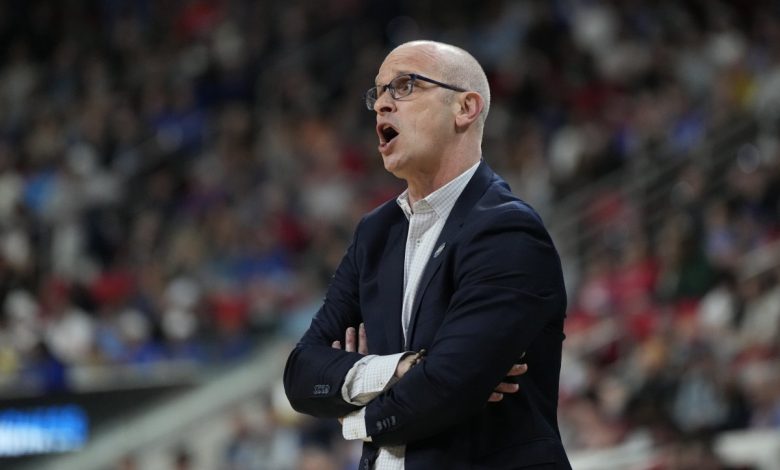
UConn’s Dan Hurley Calls Out Duke for Ducking His Calls, Criticizes Basketball Recruiting Practices: A Controversial Clash Between Two College Basketball Giants
In the world of college basketball, rivalries and tensions between powerhouse programs are as much a part of the game as the X’s and O’s. These clashes often happen on the court, but sometimes they spill over into the public sphere, creating drama that captures the attention of fans, media, and even the players themselves. Recently, the rivalry between UConn and Duke intensified off the court when Dan Hurley, the head coach of the UConn Huskies, made waves by publicly calling out Duke for allegedly “ducking” his calls and criticizing their basketball recruiting practices.
Hurley’s comments sent shockwaves throughout the college basketball community. The UConn coach, known for his fiery demeanor and candidness, accused Duke—one of the most prestigious and successful basketball programs in history—of avoiding communication with him, a move that he suggested spoke to the broader issue of recruiting ethics in the sport. While Hurley’s words may have surprised some, they revealed underlying tensions and raised important questions about the landscape of college basketball recruiting and the dynamics between top programs.
In this article, we will delve into the details of Hurley’s accusations, explore the context behind his comments, analyze the potential implications for both UConn and Duke, and discuss the broader implications for college basketball recruiting. What drove Hurley to take such a public stance? How will this controversy affect the relationship between these two powerhouse programs? And what does it say about the state of recruiting in college basketball?
Dan Hurley: A Coach Known for His Candidness
Before we examine the specifics of Hurley’s accusations, it’s important to understand the man at the center of this controversy. Dan Hurley is not a coach known for shying away from confrontation or speaking his mind. He has built a reputation for being a fiery, passionate leader who will do whatever it takes to win and protect his players and his program. Hurley took over as head coach of the UConn men’s basketball program in 2018 after a successful tenure at Rhode Island, where he turned the Rams into a consistent contender in the Atlantic 10 Conference.
Since arriving at UConn, Hurley has worked to restore the program to its former glory. UConn has historically been one of the most successful programs in college basketball, with four national championships to its name. However, in recent years, the Huskies had struggled to regain their elite status. Hurley’s mission was clear: bring UConn back to the top of college basketball, and he has made significant strides in doing so. Under his leadership, the Huskies have become a formidable force, regularly competing for top recruits and making deep runs in the NCAA Tournament.
Hurley is also known for his directness in dealing with the media and his willingness to speak his mind on a variety of topics, whether it’s his players, his team’s performance, or broader issues within the sport. His transparency and unfiltered approach have earned him both praise and criticism, but it’s clear that Hurley is not afraid to stir the pot when he feels strongly about something.
The Accusations: Hurley Claims Duke “Ducked” His Calls
Dan Hurley’s comments came during a press conference where he was discussing his program’s approach to recruiting, particularly the process of courting elite high school prospects. Hurley was asked about the competition in recruiting and how programs like UConn were navigating the complex and often cutthroat world of college basketball recruiting. His response quickly turned from an analysis of recruiting tactics to a direct shot at one of the biggest programs in the country: Duke University.
Hurley alleged that Duke had “ducked” his calls on multiple occasions during his pursuit of top recruits. He went on to suggest that the Blue Devils, under the leadership of head coach Jon Scheyer, were intentionally avoiding communication with UConn in order to prevent direct competition for some of the same prospects. Hurley did not mince words in his criticism, accusing Duke of employing what he called “underhanded” tactics to monopolize the recruiting process and ensure they were always at the top of the list for highly sought-after players.
The comments were eye-opening for several reasons. First, Hurley’s decision to publicly call out a program of Duke’s stature was highly unusual. Most college basketball coaches are careful about directly criticizing their peers, especially when it comes to recruiting, an area where programs are often fiercely competitive but also operate under the scrutiny of NCAA rules. By taking this step, Hurley not only ignited a firestorm of controversy but also drew attention to the broader issues within the recruiting process itself.
Why Did Hurley Call Out Duke?
To understand Hurley’s motivations, it’s important to consider the context surrounding the recruiting landscape in college basketball. Recruiting has always been a highly competitive and sometimes contentious aspect of the sport. However, in recent years, it has become more complex due to factors like the transfer portal, NIL (Name, Image, and Likeness) deals, and the increasing influence of third-party advisors. Elite high school basketball players are now more than ever the subject of intense competition between top-tier programs.
Duke has long been considered one of the most dominant forces in recruiting, thanks to its reputation, rich history, and ability to land top-tier talent year after year. Under former head coach Mike Krzyzewski, Duke established itself as a perennial powerhouse, attracting the best players in the country with its winning tradition and prestigious brand. While Krzyzewski retired in 2022 and was succeeded by Jon Scheyer, Duke’s recruiting power has remained intact, and the program continues to land elite talent, including multiple top-ranked high school prospects.
For a program like UConn, which has had its own fair share of success over the years, recruiting against a juggernaut like Duke can be challenging. Hurley, a coach who has worked tirelessly to rebuild UConn into a national contender, is acutely aware of the difficulties that come with competing against programs like Duke, which have deep pockets, significant resources, and decades of success on the recruiting trail.
Hurley’s decision to publicly call out Duke may have been an attempt to level the playing field. By exposing what he believes are unfair recruiting practices, Hurley is shining a light on the challenges that programs like UConn face when trying to recruit top-tier talent in a system that often favors the blue bloods of college basketball. His comments also reflect his frustration with a system that he feels is rigged in favor of certain programs, making it harder for up-and-coming schools like UConn to break through and consistently land elite recruits.
The Broader Criticism: Recruiting Practices in College Basketball
While Hurley’s comments about Duke may have been the immediate focus of his critique, his broader criticism was aimed at the recruiting practices of top college basketball programs in general. Hurley suggested that many programs, including Duke, were using tactics that made it difficult for other schools to compete. He argued that some programs, particularly the blue bloods, were engaging in practices that essentially “locked up” top talent early in the recruiting process, leaving little room for other schools to even make a serious pitch.
One of the most contentious aspects of Hurley’s criticism is the idea that programs like Duke are “ducking” calls and refusing to engage with other schools in the recruiting process. This accusation points to a deeper issue within college basketball recruiting: the lack of transparency and the possibility that certain programs are using their status to create an unfair advantage.
Hurley’s comments also bring attention to the growing role of NIL deals and how they have changed the landscape of recruiting. Schools with large fan bases and lucrative sponsorship deals, such as Duke, are in a better position to offer players potentially lucrative NIL opportunities. This has created a situation where top recruits may be more inclined to choose certain schools over others based on financial incentives rather than just basketball programs or academic reputation.
Additionally, the rise of the transfer portal has further complicated the recruiting process. The transfer portal allows players to change schools mid-career without having to sit out a season, leading to a fluid and sometimes unpredictable player movement landscape. Programs like Duke, with deep recruiting pipelines, can benefit from this system by adding established players to bolster their rosters.
The Fallout: How Will Duke Respond?
The backlash from Hurley’s comments is likely to provoke a response from Duke, as the program is not one to shy away from controversy. Jon Scheyer, Duke’s head coach, may address Hurley’s accusations either directly or indirectly in the coming weeks. Given Duke’s reputation as one of the most prestigious programs in college basketball, Scheyer’s response could range from a public denial of Hurley’s claims to a more measured approach that seeks to downplay the issue.
Duke’s response will also depend on the media and public reaction to Hurley’s comments. If Hurley’s allegations gain traction and stir up further controversy, Duke may feel compelled to address the situation more thoroughly. However, it’s also possible that the program will simply ignore the criticism, focusing instead on continuing to recruit and win games at a high level.



